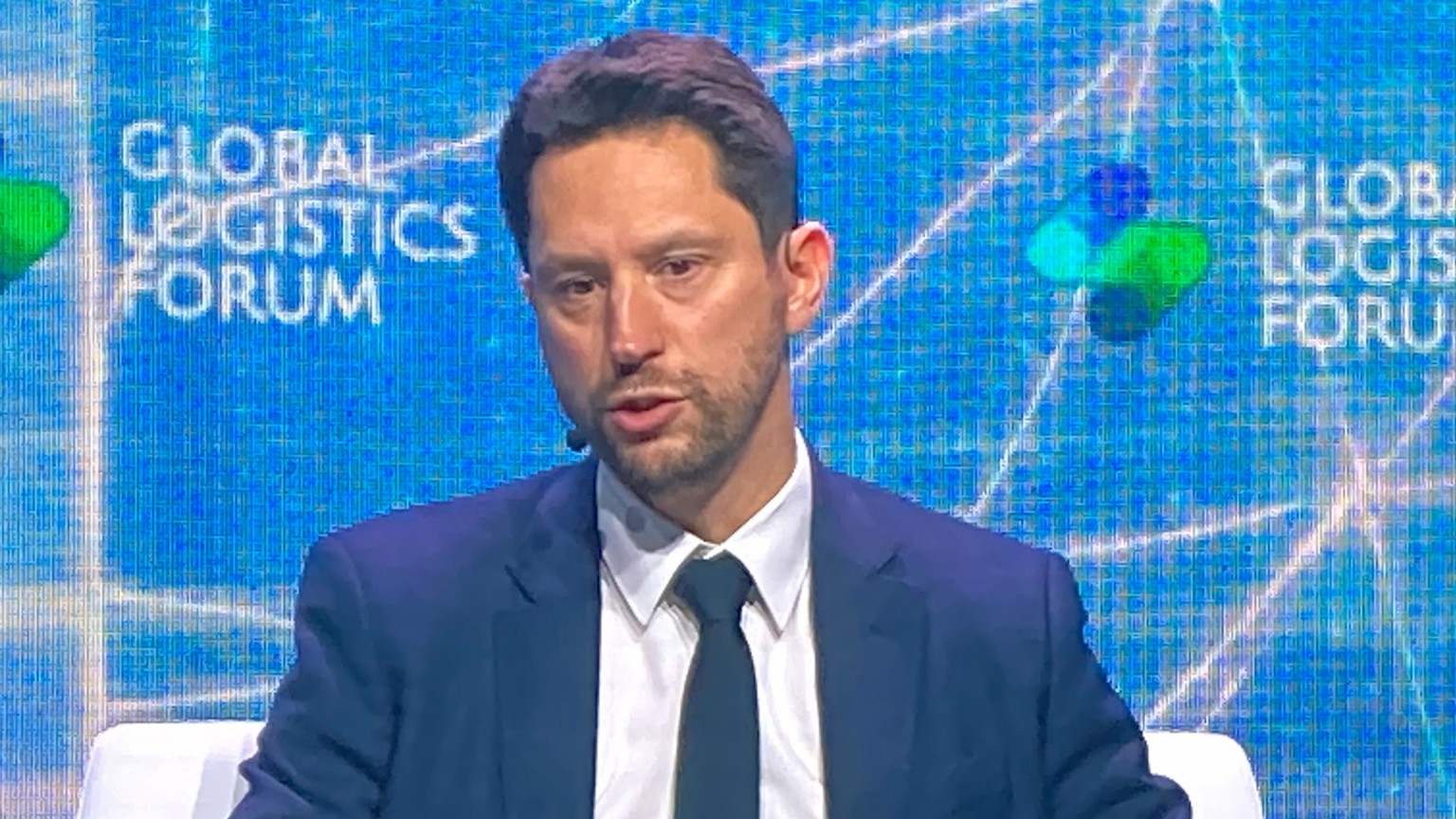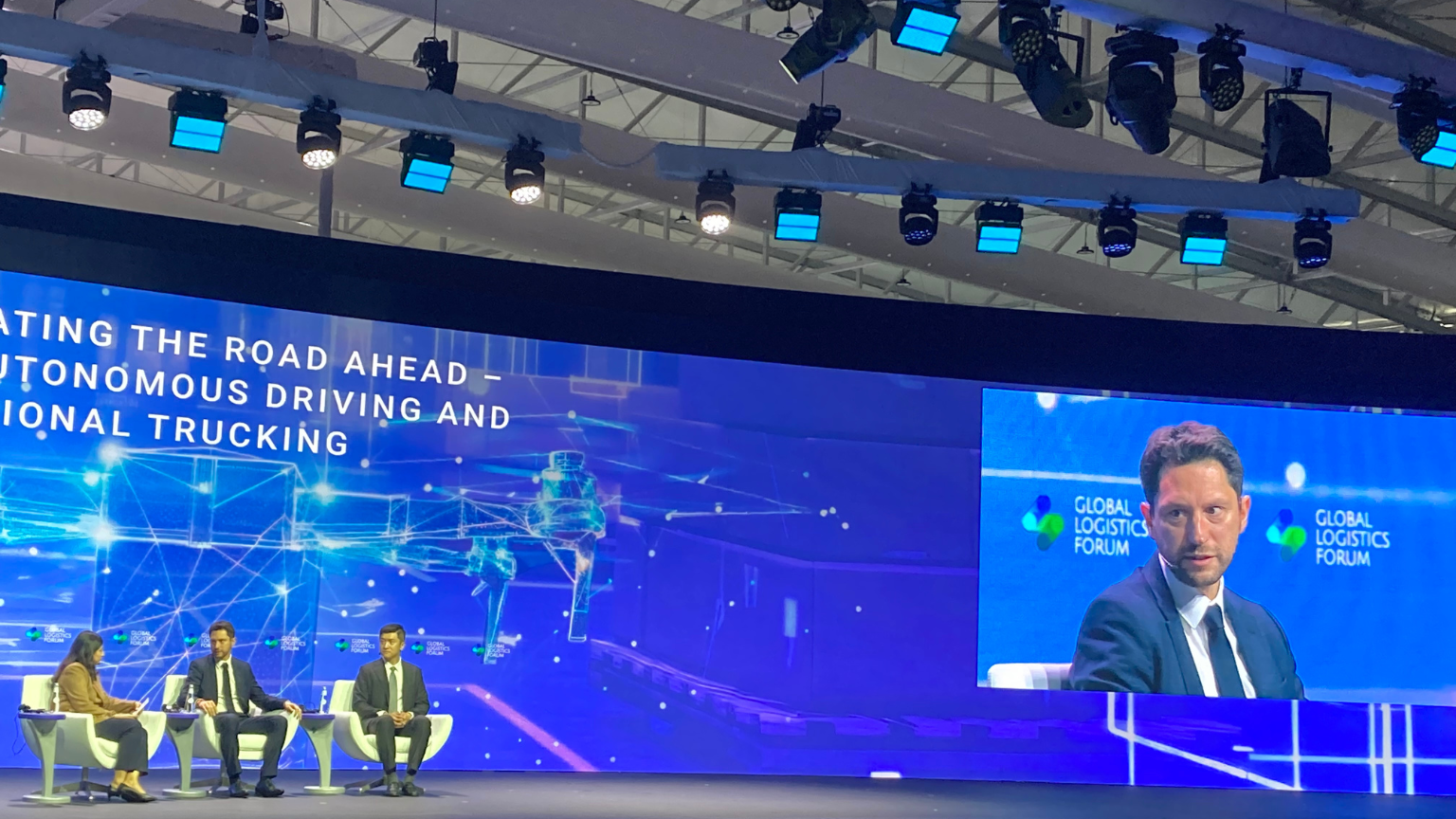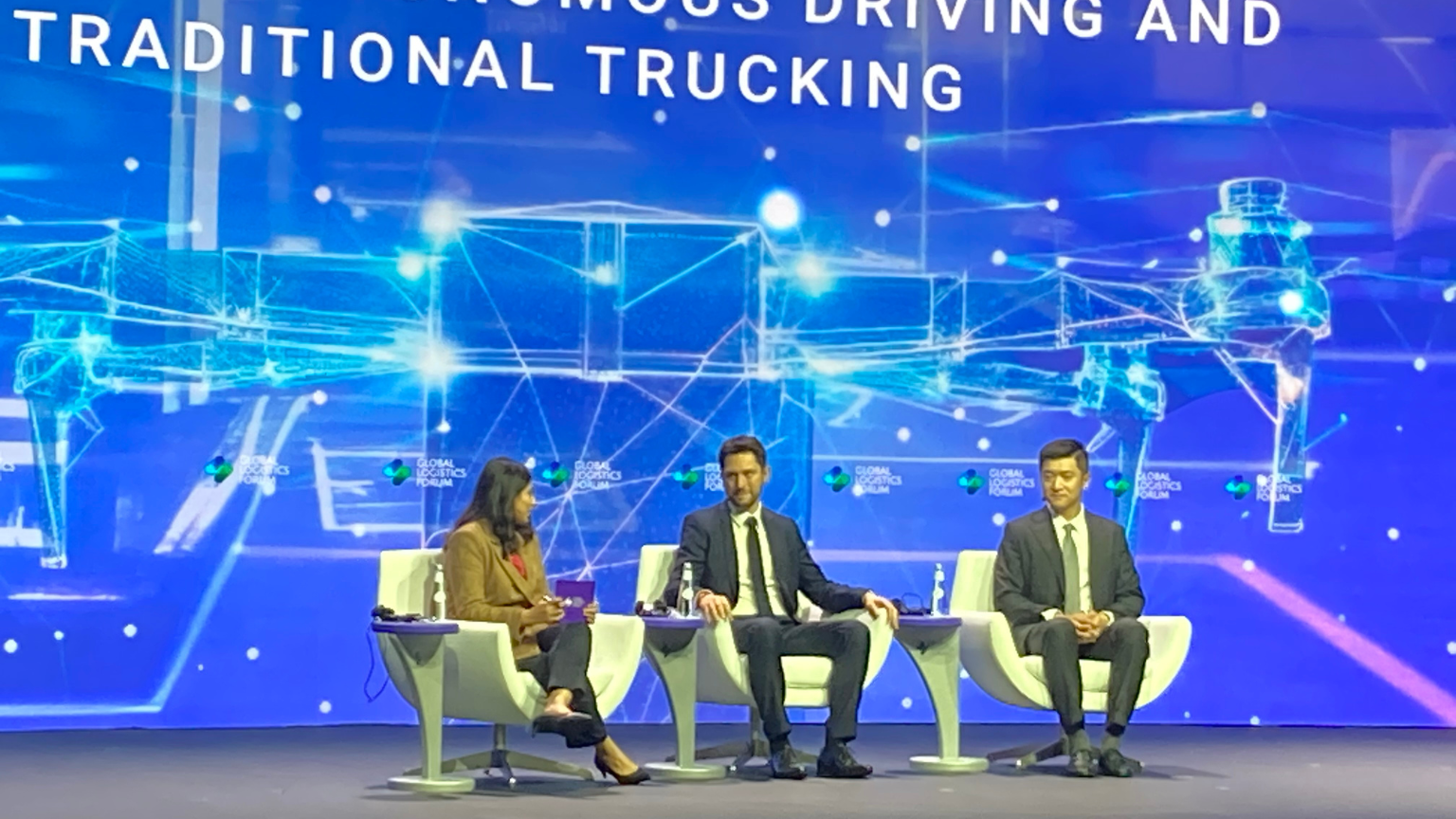Driven by technological innovation and decarbonisation goals, transport and logistics are undergoing significant change. How can we best support the transition to a more sustainable industry?
At the Global Logistics Forum in Riyadh, Saudi Arabia, IRU unpacked cutting-edge technology and decarbonisation developments in road transport as well as how governments can ease the transition.
Speaking today on a panel on electric vehicles, autonomous driving and traditional trucking, IRU Senior Director of Strategy and Development Vincent Erard said, “Battery technology is a key area where we’re seeing a great deal of innovation. Manufacturers are working on solutions to boost battery capacity without adding to size or cost. The battery pack is the most expensive component of battery-electric trucks, accounting for 20-40% of their total cost of ownership. Keeping costs low is crucial.
“Other areas where we are seeing developments include smart trailers, advanced driver assistance systems and the integration of the Internet of Things. Smart trailers are becoming increasingly popular as fleet managers better understand the value of tracking trailers independently from trucks.
“Of course, artificial intelligence (AI) is also powering change. AI in road transport involves adopting new technologies and rethinking logistics to be more efficient and responsive.”
On decarbonisation, Vincent Erard said, “The green transition is very capital intensive. Governments must offer subsidies and tax incentives to support the significant upfront costs of adopting electric technologies."
“To truly drive innovation, we need to mobilise the whole ecosystem. It’s not only about logistics. We need partnerships among technology firms, manufacturers, energy providers, infrastructure developers and governments. This is very much the thinking behind the IRU Green Compact: our industry’s roadmap to carbon neutrality by 2050,” he added.
With the Green Compact, IRU is building a global, pragmatic, collaborative, evidence-based approach to support the most optimal and cost-effective approaches to decarbonise road transport.
“With growing transport demand worldwide, the most efficient pathway to decarbonisation is a dual approach that cuts costs via efficiency measures while implementing alternative fuels in the longer term. But advancing alternative fuels relies heavily on governments providing the necessary enabling conditions and infrastructure,” said Vincent Erard.
Efficient decarbonisation measures include eco-driving training for drivers, adopting eco-trucks that can carry more goods, and optimising routes or timings using vehicle-to-everything technology.
“Policymakers need to maintain ongoing dialogue with industry representatives to ensure they are supporting the green transition and anticipating the impacts of new regulations. Given that this is a transition, there’s no one-size-fits-all solution. Instead, we need a range of strategies to meet decarbonisation targets,” concluded Vincent Erard.



